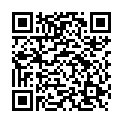|
|
|
| Module code: MAM-8.V.3 |
|
2V (2 hours per week) |
|
2 |
| Semester: 8 |
| Mandatory course: yes |
Language of instruction:
German |
Assessment:
Graded practical work including presentation
[updated 12.09.2004]
|
MAM-8.V.3 Engineering and Management, Master, ASPO 01.10.2004
, semester 8, mandatory course
|
30 class hours (= 22.5 clock hours) over a 15-week period.
The total student study time is 60 hours (equivalent to 2 ECTS credits).
There are therefore 37.5 hours available for class preparation and follow-up work and exam preparation.
|
Recommended prerequisites (modules):
None.
|
Recommended as prerequisite for:
|
Module coordinator:
Prof. Dr.-Ing. Horst Altgeld |
Lecturer: Prof. Dr.-Ing. Horst Altgeld
[updated 06.09.2004]
|
Learning outcomes:
This course teaches students about four selected software packages and their application in the field of energy technology and process engineering. Each student has the opportunity to become acquainted with one of the four products in more detail.
Students will be taught how these tools can be employed for design and layout tasks and how they can be used to control, and therefore reduce, the number of experimental studies required.
[updated 12.09.2004]
|
Module content:
Sample software packages:
1. e.g. TRNSYS(R) (Tool for simulating building and plant energy use)
2. e.g. FLUENT (computational fluid dynamics, CFD)
for analysing systems involving fluid flow and heat transfer processes
3. e.g. T-Sol, PV-Sol,… (simulation of thermal and photovoltaic solar energy systems)
4. Process simulation and similar software
[updated 12.09.2004]
|
Teaching methods/Media:
Software manuals and specialist literature tailored for the specific assignment being tackled
[updated 12.09.2004]
|
Recommended or required reading:
Various manuals (user guides, tutorials) depending on software packages chosen
[updated 12.09.2004]
|


